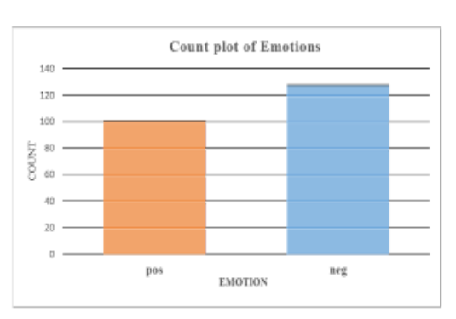


Indian Journal of Science and Technology
Year: 2024, Volume: 17, Issue: 14, Pages: 1474-1484
Original Article
Shailesh S Sangle1*, Raghavendra R Sedamkar2
1Research Scholor, Computer Engineering Department, Thadomal Shahani College of Engineering, Bandra (W), Mumbai, Maharashtra, India
2Professor, Computer Engineering Department, Thakur College of Engineering and Technology, Kandivali (E), Mumbai, Maharashtra, India
*Corresponding Author
Email: [email protected]
Received Date:22 January 2024, Accepted Date:08 March 2024, Published Date:03 April 2024
Objectives: The primary objectives of this study encompass the enhancement of election campaign strategies through the synthesis of sentiment-laden slogans derived from Twitter data. This is achieved by employing a novel Hybrid SDG-LSTM model, aiming to improve sentiment prediction accuracy and communication efficacy in the context of political campaigns. Methods: The process of slogan generation relies on sentiment prediction derived from sentiment-laden tweets. The proposed sentiment analysis methods for election campaign slogans encompass Long Short-Term Memory (LSTM) and Gated Recurrent Unit (GRU). A novel approach is introduced through the Hybrid SDG-LSTM model, leveraging the combination of Self-Distillation Guidance (SDG) with LSTM to enhance sentiment prediction accuracy and efficiency. This innovative method aims to provide a more robust and effective means of analyzing and generating slogans for election campaigns. Findings: The performance assessment of Deep Learning models, GRU, LSTM, and the Hybrid architecture, unveiled compelling outcomes. GRU showcased a commendable accuracy of 92.98%, while LSTM impressed with 95.91%. Remarkably, the Hybrid Spatial LSTM with GRU surpassed both, achieving perfection with 100% accuracy, precision, recall, and an exceptionally low loss of 0.0. These results underscore the superior performance and efficacy of the Hybrid model in sentiment analysis tasks. Novelty: The novelty of this research is encapsulated in the introduction of the Hybrid Spatial LSTM with GRU model, which demonstrates groundbreaking 100% accuracy, surpassing current models. This innovation capitalizes on the synergistic fusion of spatial attention mechanisms and the dynamic nature of GRU, marking a substantial advancement and establishing a new benchmark for highly accurate predictions in the domain of sentiment analysis.
Keywords: Slogan Generation, Sentiment Analysis, Election Campaign, Deep Learning, LSTM, GRU
© 2024 Sangle & Sedamkar. This is an open-access article distributed under the terms of the Creative Commons Attribution License, which permits unrestricted use, distribution, and reproduction in any medium, provided the original author and source are credited. Published By Indian Society for Education and Environment (iSee)
Subscribe now for latest articles and news.